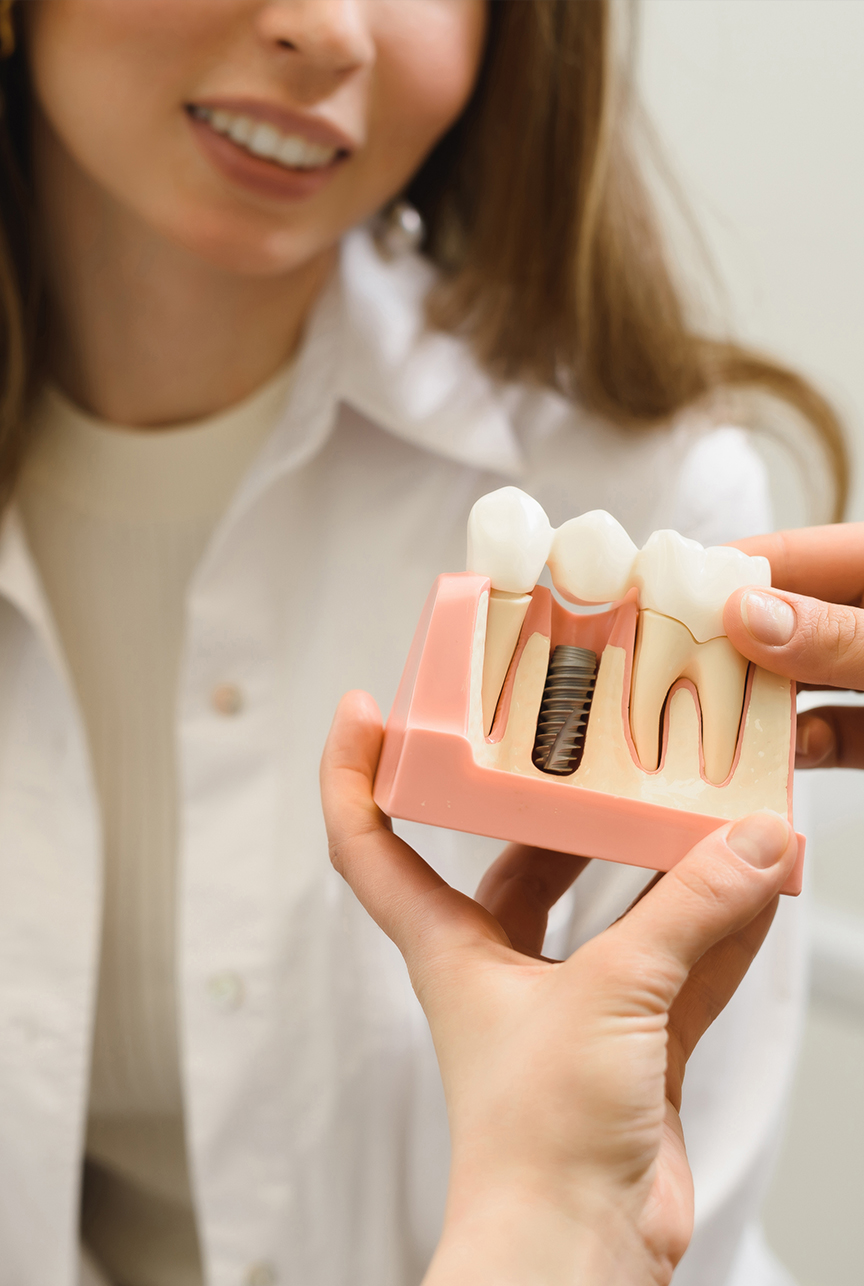Missing teeth – especially having multiple missing teeth – can have a negative impact on the overall well-being of a patient.
What causes missing teeth?
A patient might have a missing tooth or teeth for a variety of reasons. You could have suffered an injury or trauma or, as in most cases of missing teeth, gum disease. Extensive tooth decay, especially if left untreated for long periods of time, can also lead to the loss of a tooth or teeth. This is why preventive treatment and care is so important.
Why should I replace my missing tooth?
Replacing a missing tooth is of great importance to preventing further oral healthcare issues. Missing teeth can lead to a variety of future problems, including food and debris becoming lodged in the gap left by the tooth, which in turn can lead to decay.
Tooth loss can also exacerbate the loss of bone density in the jaw, which can have an effect on the patient’s facial structure, often leading to premature signs of ageing. A missing tooth can also cause the remaining teeth to move and misalign as they try to fill the gap left by the tooth.
A missing tooth does more than just effect your oral health, however, it also effects your daily life. Speaking and eating can become difficult with a missing tooth or multiple missing teeth, and it can negatively impact your self-confidence.
If you have a missing tooth or teeth or are interested in any of our treatments at The Corner House Dental Practice, please contact us or call us on 01403 251 015.
FAQs
What are my replacement options?
At The Corner House Dental Practice, we have a wide variety of replacement options when it comes to missing teeth. We can place bridges, dentures, implants, and implant-retained bridges depending on your needs and smile ambitions.
If you have a missing tooth, then we’ll always recommend replacement as soon as possible, as long as it’s suitable for you. Your journey to a new smile will start with a consultation where we assess your situation and which replacement option is right for you.
For more information regarding this treatment
BACK TO General Dentistry













